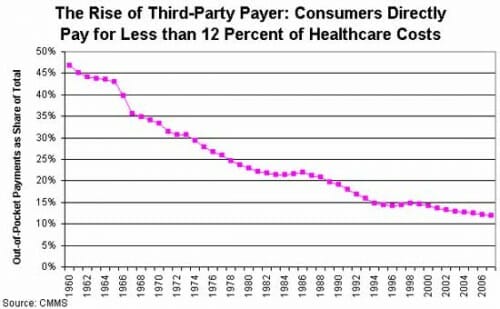Via the Dallas Morning News:
A last-minute change in the federal health care bill ditched a proposed 5 percent tax on cosmetic medical procedures and replaced it with a 10 percent tax on indoor tanning services.
Goodbye Botox tax. Hello tan tax.
This seems really random. Why should either of these businesses foot a special, disproportionate share of my health care bill? Well, things that seem random to most of us make perfect sense in Congress.
The tan tax popped up in the health care bill last weekend after powerful medical lobbies "“ including the American Academy of Dermatology Association, American Medical Association, American Society of Plastic Surgeons and Botox-maker Allergan "“ persuaded Congress to remove a tax on cosmetic medical procedures and replace it with a 10 percent surcharge on indoor tanning services.
Lobbyists are very good at punching political hot-buttons. Since they couldn't argue that botox is "for the children," and since it is generally used by rich white people they could not place the race or class card, they played the only card they had:
"Since 90 percent of cosmetic surgery patients are women, this would have been a very discriminatory tax," said White, who opposed the cosmetic surgery tax.
Technocrats want to believe, and perhaps honestly believe themselves, that care guidelines in the new Federal health care system will be science-based. What possible basis do they have for thinking that? We have 50 state laboratories, where states specify must-carry rules on procedures, and not a single one of these lists are science based -- they are loaded with special interest handouts. I even show in this post how special interests give money to academia to produce studies whose entire conclusion is that certain procedures (performed by the special interest group funding the study) need to be in the minimum coverage laws. The very first time out, when confronted with a science-based care recommendation (that women not receive breast cancer screening until after 50), the Congress specifically overrode it in the bill under a firestorm of public outcry.
But maybe the dermatologist guys are really looking after us? After all:
The American Academy of Dermatology warns of significant health risks caused by indoor tanning.
But, as it turns out, it only sees health risks in the use of ultra-violet light by practitioners who are not members of their trade group. I have bolded the key passage that gives away the game.
Indoor tanning industry groups note that dermatologists use tanning equipment in their offices for cosmetic skin conditions, such as eczema and psoriasis, in phototherapy treatments that cost up to $100 per visit billed to health insurance companies. In contrast, indoor tanning salons cost as little as $6 to $20 per session.
The tan tax would exempt phototherapy services performed by a licensed medical professional.
"This is like Coke being allowed to lobby the government to tax Pepsi, but that Coke be allowed to sell the same product and not be taxed for it," International Smart Tan Network Vice President Joseph Levy said in a statement. "It's unbelievable."

